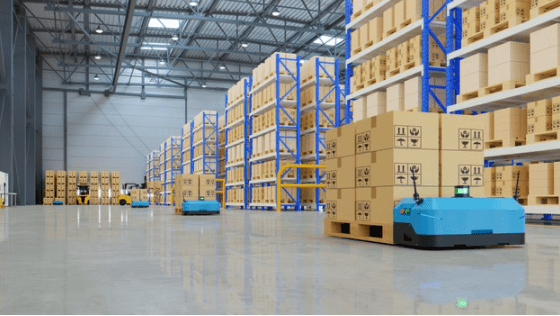Managing a warehouse is a daunting task. To ensure proper management of storage and the movement of inventory control requires a well-thought plan. There should be a system put in place to keep track of how receiving, picking, packaging of stock items is done. But we notice that when it comes to choosing a system for management, businesses are confused between a warehouse management system or an ERP. Both have their respective sets of advantages and disadvantages, which we are going to elaborate on in today’s blog post.
So what is a warehouse management system?
It is a system that controls and manages the storage and movement of the inventory. WMS makes use of different technologies like Radiofrequency identification, wireless LAN, and barcode scanning to keep a tab on the receiving, picking, packing, and shipping of stock items. It is a standalone system that accurately measures and tracks the movement of storage products. On the basis of historical trends and data, it can also generate reports on the optimal location of the stock items for visibility.
Since it’s a standalone application, your business might require other systems. That is to keep a tab on other aspects of the operation like finance, human resource, accounting.
Moving on to ERP, it is a collective system that keeps track of all the departments in an organization with the integrated applications. It collects, stores, manages and interprets data from production, manufacturing, cost, marketing, sales, inventory, shipping, and payment. Thus, being an integrated solution, it has all the capabilities of the warehouse management system.
This is what differentiates a WMS from ERP. WMS is a standalone system managing and storing inventory data. ERP is an integrated solution that covers all the aspects of a business. Thus this is why a significant number of organizations, big and small, opt for ERP system. It brings agility, efficiency, and productivity to the business.
While many modern warehouse management system is adding supply chain management and other capabilities, ERP is still a better choice, owing to its plethora of benefits like:
- Standardizes businesses processes
- Cuts down on the operational cost
- Improves supply chain management
- Seamlessly integrates with other applications
- Improves reporting and planning
- Ensures data security
- Improves the quality of business processing and the products
- Proffers scalability and total visibility
- Gives your complete control over your business thus empowering you to make the right decision
- Enhances customer service
- Facilitates regulatory compliance
- Improves the overall efficiency
There is no doubt in the fact that the initial cost of ERP implementation is relatively higher than that of warehouse management. But the subsequent advantages trump it and make it worthy of investment, for every business, big or small.
And if you are planning to invest in an ERP, we would recommend going for cloud-based ERP like Acumatica. It adds more value in comprison to the legacy systems, making your business efficient and garnering a higher return on investment.
If you are planning for a cloud-based ERP implementation, look no further than Tayana Solutions. Our Acumatica ERP experts will guide you to quick and easy implementation. Thus they will ensure that you get the output with judicious resource allocation and your profit is maximized for the long term.

Vijay comes with a vast experience in ERP and enterprise solutions space with about 20 years of experience in various packaged application like Acumatica, SAP, Orion, Salesforce.com, SugarCRM and, SalesLogix.

